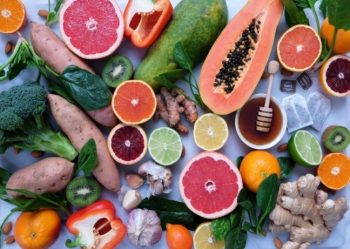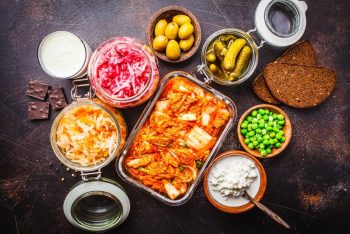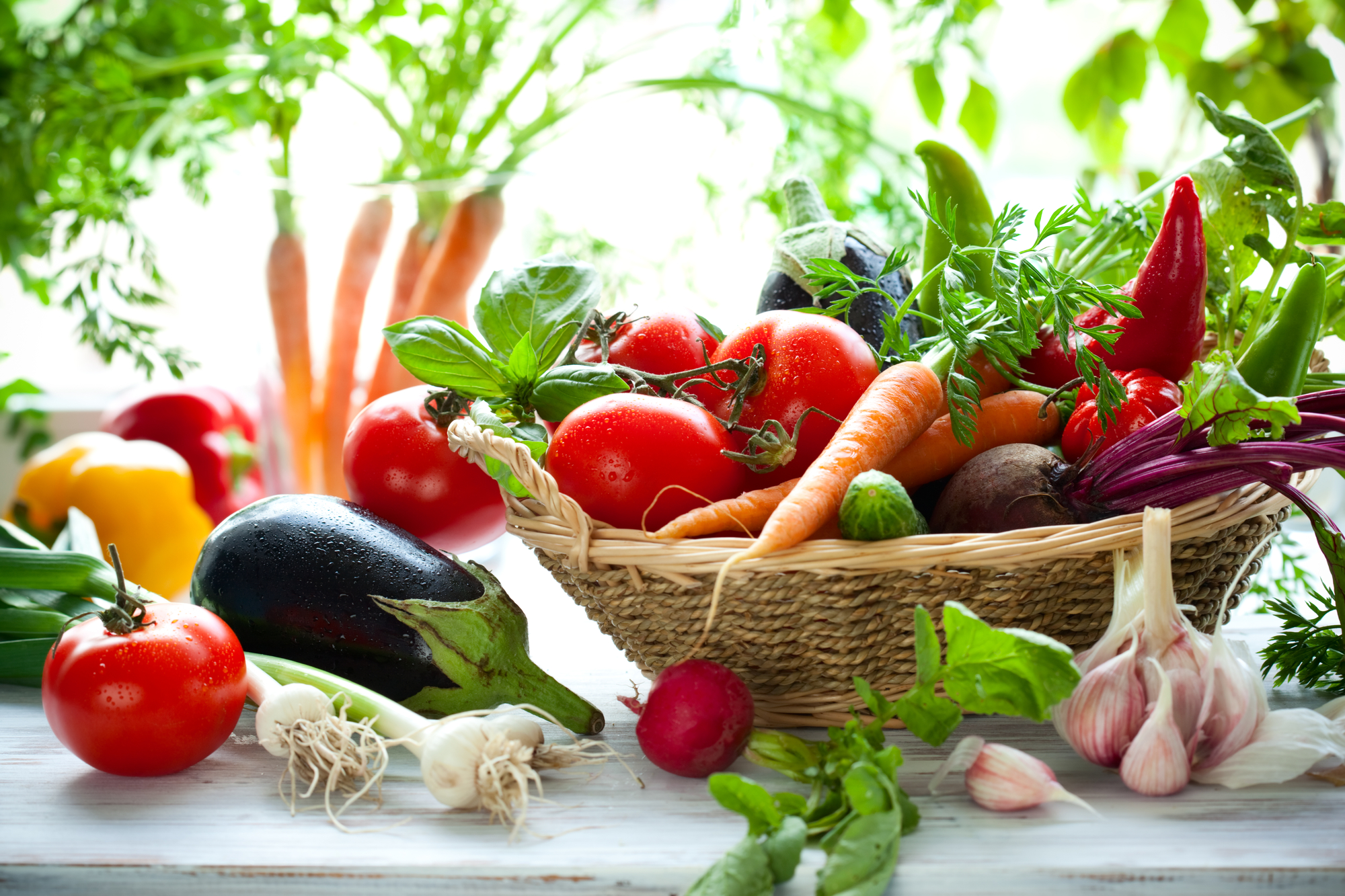Our immune system functions to protect us against the constant daily barrage of microbial pathogens, foreign invaders and mutating cells. How easily we are able to resist and recover from disease is largely due to the strength and integrity of our immune system.

A robust immune system is created through a number of simple strategies, including a healthy diet and exercise, stress reduction practices and simple hygiene habits.
Food is Medicine:
Good nutrition is essential for immune system functioning and should include adequate levels of protein, Vitamins A, C, E and zinc, as well as other nutrients such as B6, folate, selenium and iron.
Top 15 Immunity Boosting Foods:
| · Almonds
|
· Citrus
|
· Papaya
|
| · Berries
|
· Garlic
|
· Shellfish
|
| · Broccoli
|
· Ginger
|
· Spinach
|
| · Capsicum
|
· Green Tea
|
· Sweet Potato
|
| · Cinnamon
|
· Kiwifruit
|
· Yoghurt
|
NB: If you’d like more information about these delicious foods as well as some great recipes, head to: http://cherierivas.com/boost/
 According to research, our gut microbes also play a large role in our body’s defence and the more diverse the variety, the less prone we are to allergies and disease. The best way to boost our microbiome is just as nature intended…. through real, living, fresh produce.
According to research, our gut microbes also play a large role in our body’s defence and the more diverse the variety, the less prone we are to allergies and disease. The best way to boost our microbiome is just as nature intended…. through real, living, fresh produce.
Where possible, select foods that are high in dietary fibre and aim to add more fermented foods where possible, including yoghurt, kombucha, kefir, sauerkraut and kimchi (to name a few).

Movement as Medicine:
Research has also shown that moderate levels of regular exercise reduces our susceptibility to illness. In a one year study of over 500 adults, it was found that 1-2 hours of moderate physical activity per day was associated with a one third reduction in upper respiratory tract infections.
Other studies have also shown that people who exercise 2 or more times per week have half as many days off work or school due to colds or flu, in comparison to those who don’t exercise.

Stress Reduction as Medicine:
Stress can occur when events in our lives seem out of control or begin to overwhelm us. It causes our body (and the bodies of our children), to produce greater levels of the stress hormone, cortisol.
In large amounts or through long term exposure, one of the biggest impacts of cortisol, is the reduction of lymphocytes (white blood cells) that help fight off infection. The lower the lymphocyte level, the higher the risk of contracting colds, flus and even cold sores.

Managing Stress More Effectively:
Stress reduction strategies not only give our mind a break, but they can also relieve the pressure on our immune system. Two methods that can help to reduce both short-term and long-term stress include:
- Meditation: Meditating for 10 -15 minutes three or four times per week will lower stress levels. In addition to reducing cortisol levels and inflammation, research also shows that it prevents the breakdown of chromosomes that can lead to cancer and premature aging.
- Yoga: Practicing yoga also lowers stress hormone levels and calms the nervous system. Deep breathing helps to boost resistance to infection, and inverted poses help to circulate fluid through the lymphatic system, thus helping with the elimination of toxins.
If meditation or yoga aren’t yet your strong skills, or if you struggle to get the kids involved… build up to it over a period of time, starting with just a minute or two of deep breathing and then begin to add in some beautiful relaxing stretches.

Hygiene as Medicine:
Frequent hand-washing is another great way to avoid getting sick and spreading illness. As we go about our everyday life, germs accumulate on our hands… and when we touch our eyes, nose or mouth, germs can be transferred and cause infections. It’s important therefore, that kids (& parents), wash their hands after touching anything that may contaminate them, as well as before touching anything that needs to stay clean. This includes:
- when hands are visibly dirty;
- before preparing food or after touching raw meat;
- after sneezing, coughing or blowing nose;
- after patting animals;
- before and after touching a wound, cut or rash;
- after being in contact with body fluids;
- after using or cleaning the bathroom;
- after toilet training a child, or changing a nappy;
- before and after visiting a sick person in hospital;
- after handling rubbish, household or garden chemicals.
Warm, soapy water is the best option for washing hands when they are visibly dirty. (Normal soap is just as good as antibacterial soap). Where possible, dry hands as best as possible, and if using a public toilet, use the paper towel or air dryers.
A hand sanitiser is a good way to clean hands if there is no access to soap and water, however it is only effective if hands have no visible dirt on them.
Being consistent with each of these practices will boost your immune system as well as make you feel happier, more energized, and bursting with good health before you know it!
__________
Written by: Cherie Rivas
Women’s Health & Wellness Mentor & Coach


If you’d like to build an indestructible Immune System through a mouth-watering menu, please feel free to download a copy of BOOST! The Ultimate Immunity Boosting Guide.
It’s my Top 15 immunity boosting foods…. with a load of interesting information & recipes. <3
Get your FREE COPY here: http://cherierivas.com/boost/
C.
xx
You may also like to read:









